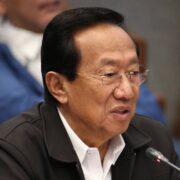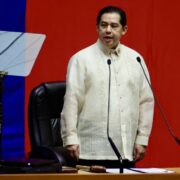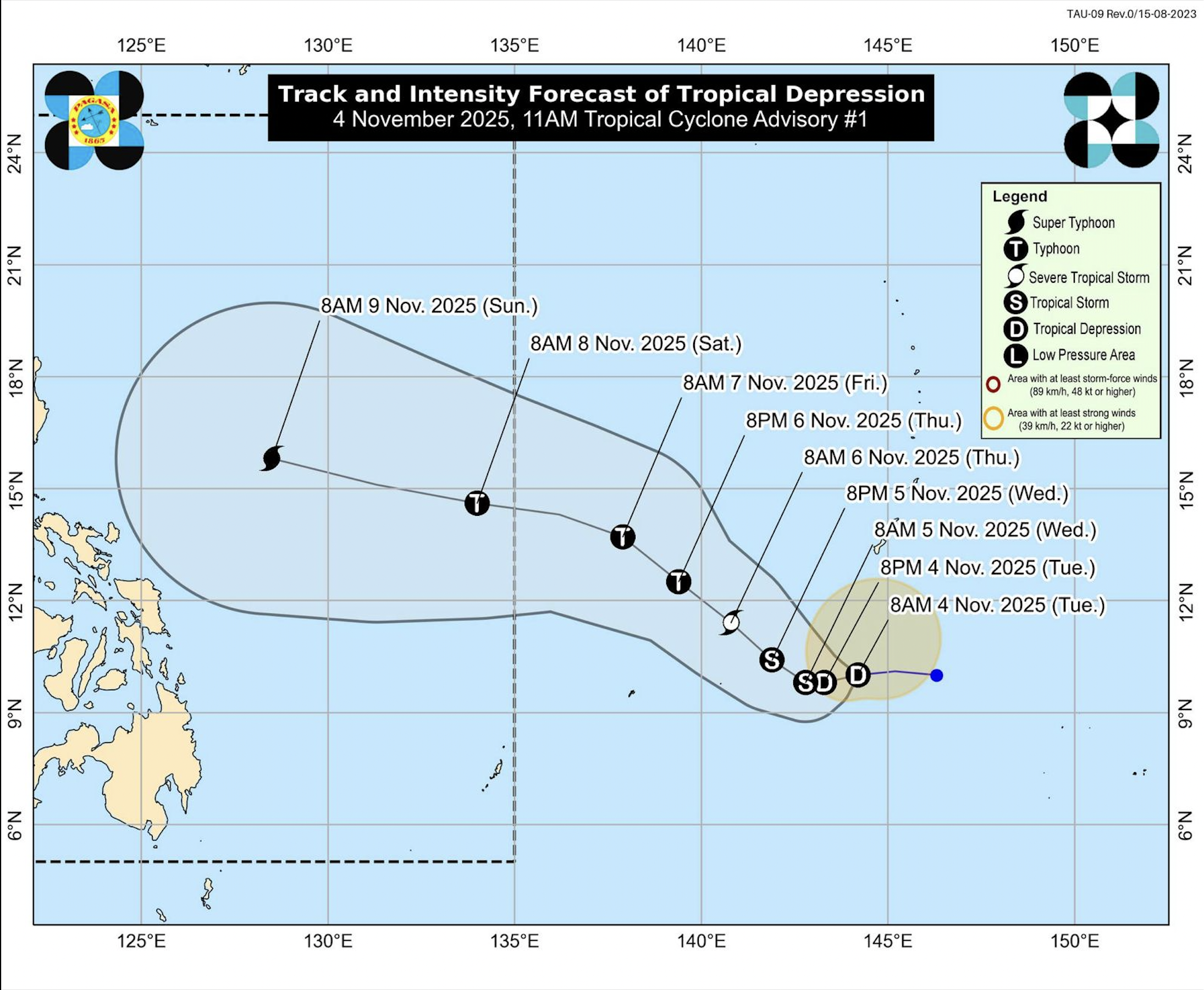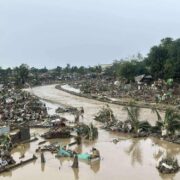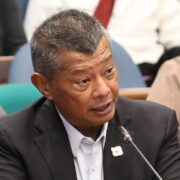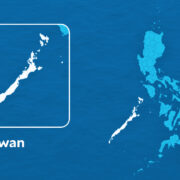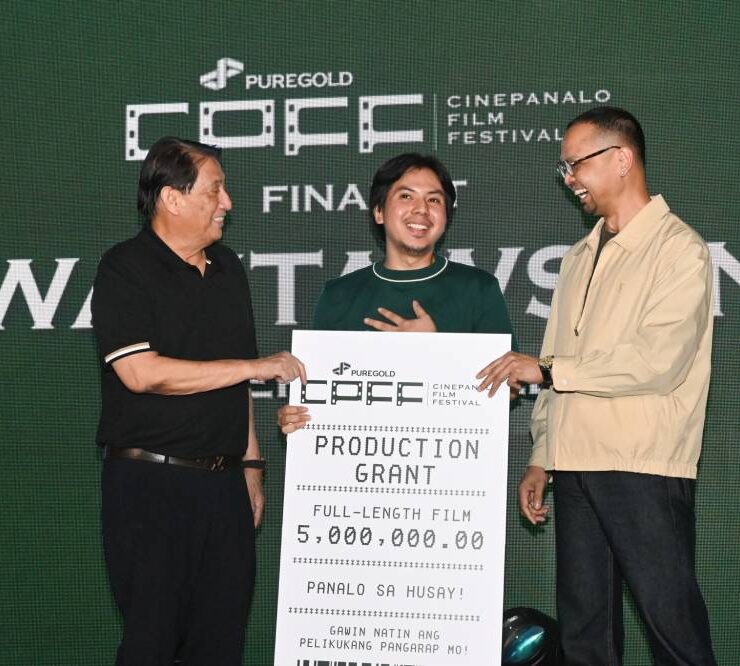Building a home for SEA cinema in Quezon City
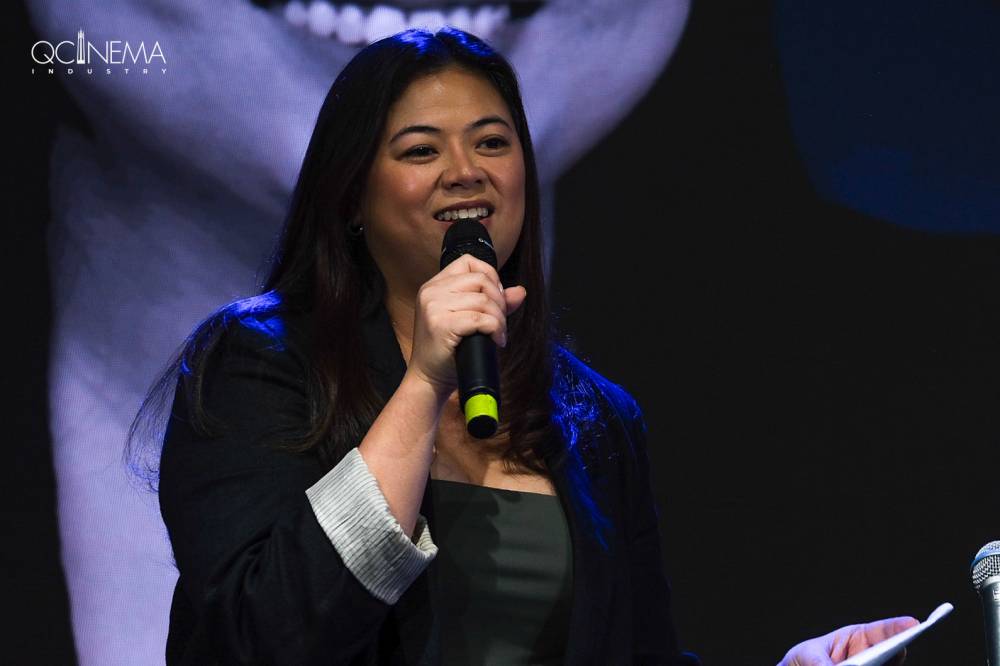
Showcasing a finished film is one thing; being part of the process that guarantees it gets made in the first place is another.
This is the mission that defines the QCinema International Film Festival today. While it continues to champion filmmaking as an art, the annual event—through its QCinema Industry platform—has expanded its scope and committed itself to facilitating professional development, funding, and international partnerships for projects with global ambition through its programs like the QCinema Project Market (QPM).
Together with the QCinema Film Market (QFM)—a newly launched initiative that gathers 15 exhibitors from Quezon City’s top production, post-production, and distribution companies—QCinema intends to equip filmmakers with the tools they need to finish and market their projects by connecting them with the necessary vendors and distributors.
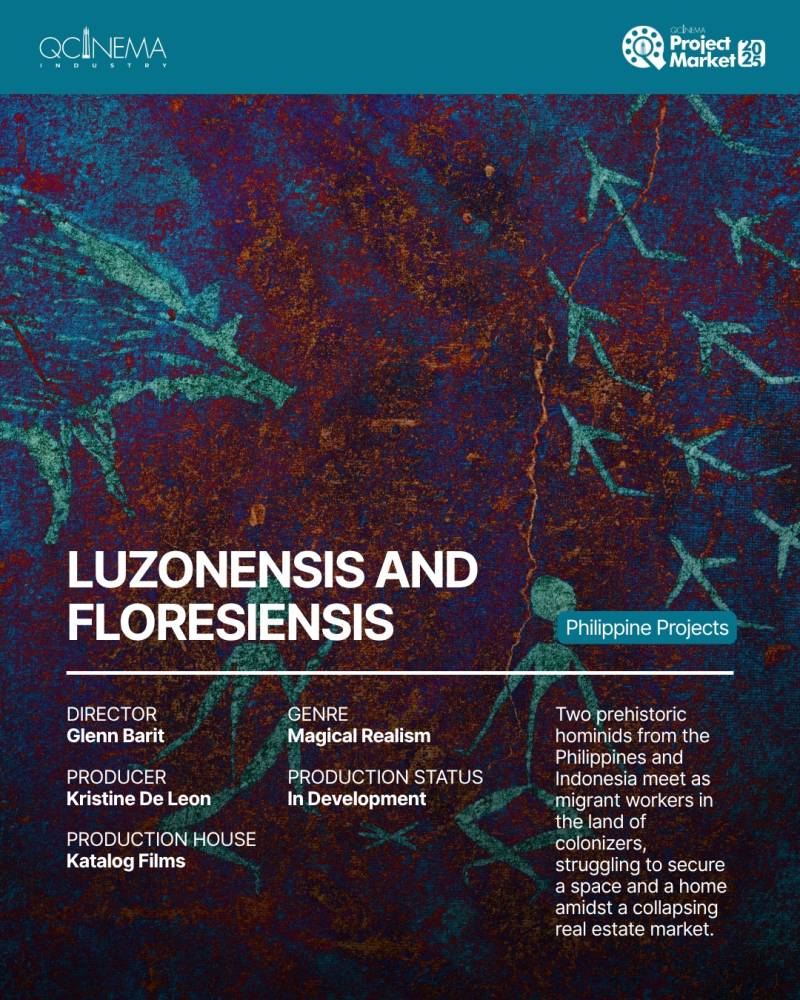
Sustainable platform
Through these efforts, QCinema envisions Quezon City—now recognized as a UNESCO Creative City for Film—as a home for Southeast Asian (SEA) cinema.
“It’s like a meeting place where business happens. Our goal is to have a sustainable platform where we don’t just screen or watch films but also understand how they’re made, and how we can work together to make sure that these films continue to get produced,” Quezon City Film Commission executive director and QCinema Industry head Liza Diño tells Lifestyle Inquirer.

“This year, the goal is to showcase Quezon City-based companies and partners. But in the coming year, we want to feature the best of Southeast Asia’s film companies and industries, too,” she adds.
Historically, Diño says, films are often financed almost entirely by a single entity or a major studio. While collaborations among these movie outfits have become more common recently, the continued rise of independent filmmaking necessitates moving away from reliance on a single source of funding.
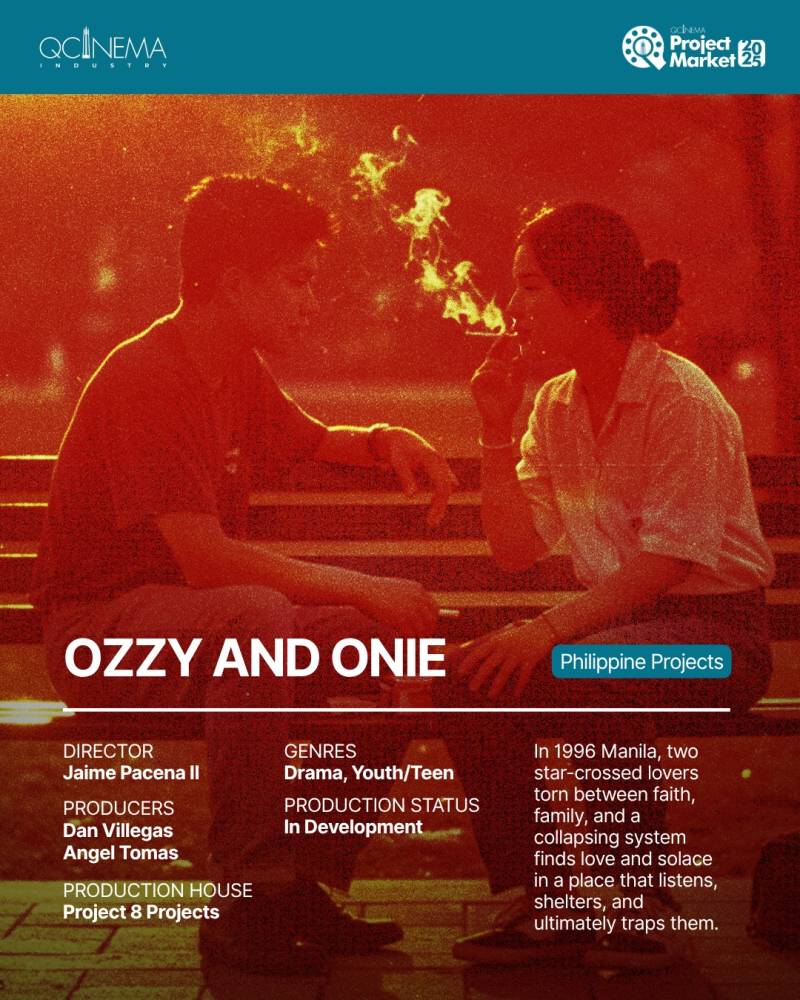
Multiple funding streams
As such, Diño says, it’s important that filmmakers understand that there are other ways to secure funding, and to learn how to access multiple global streams to make their projects more feasible and sustainable. This includes soft money, recoupable funds, or grants that don’t need immediate return as well as maximizing funds or incentives made available through such treaties like the Philippine-France Cinematographic Co-production Agreement.
“If you have an international co-production model, and your financing doesn’t involve only local producers, you can dream bigger. You’re more empowered to create better films,” Diño points out. “You open yourself up to other countries pitching in to finance your film. Opportunities for distribution also come up. Your work gets eligible to be sold in film markets.”
“We’re all about giving filmmakers the knowledge needed to be globally competitive,” she adds.
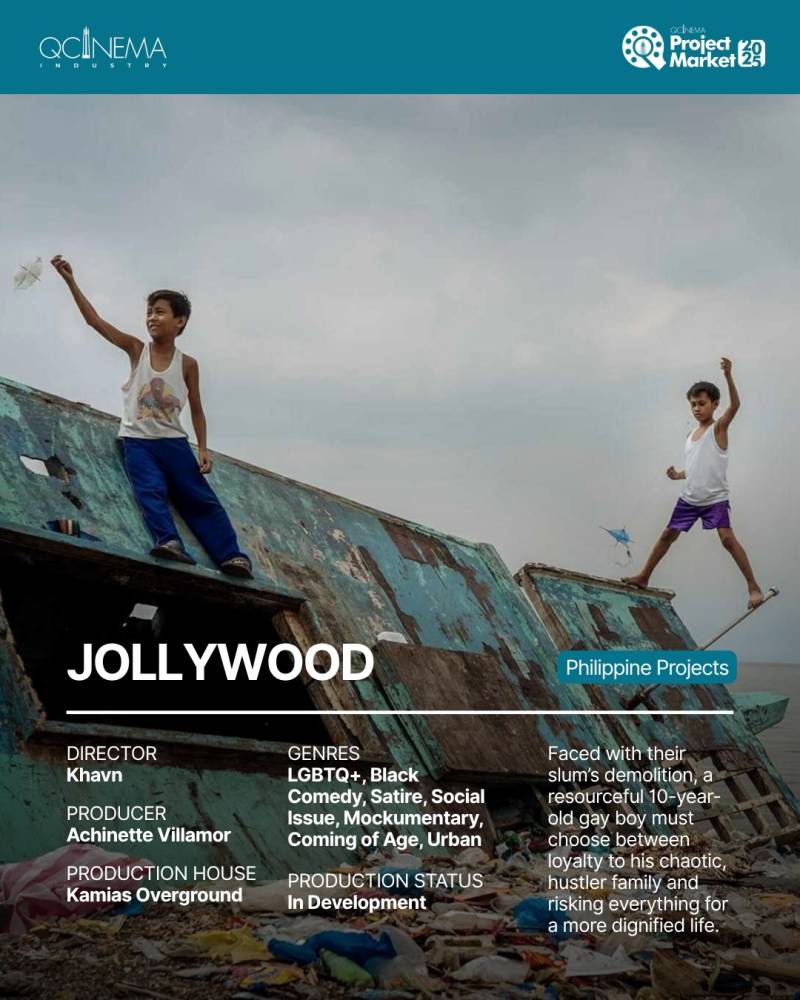
Bridging Filipino and SEA filmmakers
This is the kind of support and resources QCinema will provide this year’s batch of QPM projects, whose Philippine lineup includes: “Amateur” by Dan Villegas; “Daddy Cool” by Dominic Bekaert; “Dear Wormwood” by Dodo Dayao; “Jaguar” by Dean Colin Marcial; “Jollywood” by Khavn dela Cruz; “Komixxx” by Jopy Arnaldo; “Luzonensis and Floresiensis” by Glenn Barit; “Ozzy and Onie” by Jaime Pacena II; “Sentinel” by Carl Joseph Papa; “The Void is Immense in Idle Hours” by Sam Manacsa; “There Is, There Isn’t” by Arjanmar Rebeta; and “What’s Left of Us” by Tyrone Acierto.
Meanwhile, comprising the Southeast Asian slate are: “Ghost of the Currents” (Thailand), “Penumbra” (Singapore), “Ray of Light” (Thailand), “Romdoul, the Evening Fragrance” (Cambodia), “Strange Root” (Singapore), “The Willing” (Malaysia), “When the World is Paused” (Myanmar), “The River Knows Our Name” (Vietnam), and “Dancing Gale” (Indonesia).
“We’re building bridges between Filipino and Southeast Asian filmmakers, so we can create a film culture that’s globally recognized but still ours,” Diño says.
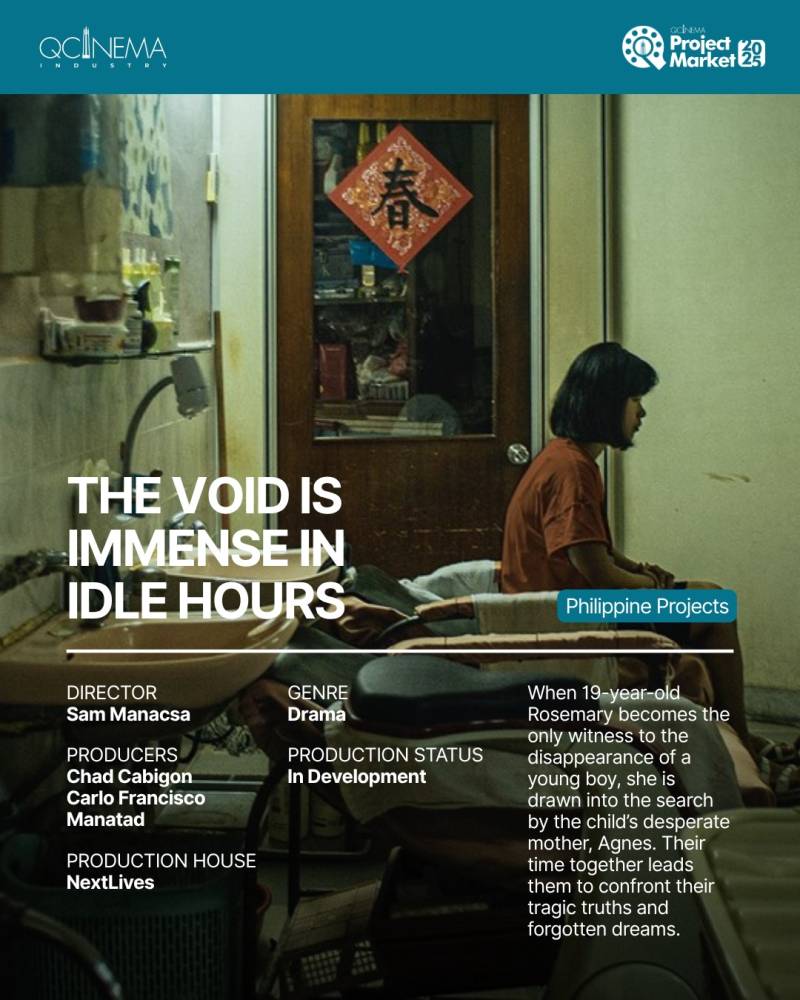
Unlike most film festivals, which require filmmakers to complete their work within a year of selection, QCinema sets no definite deadline, giving them the time they need to find partners and realize the full potential of their films. For instance, Mervin Malonzo’s “Ella Arcangel: Awit ng Pangil at Kuko”—one of the projects from the 2023 QPM batch—has just found a new co-producer in GMA Pictures, and is set for release next year.
“It takes a while, but that’s the kind of support we give the filmmakers,” Diño says. “We give them enough time to create the best version of their films.”
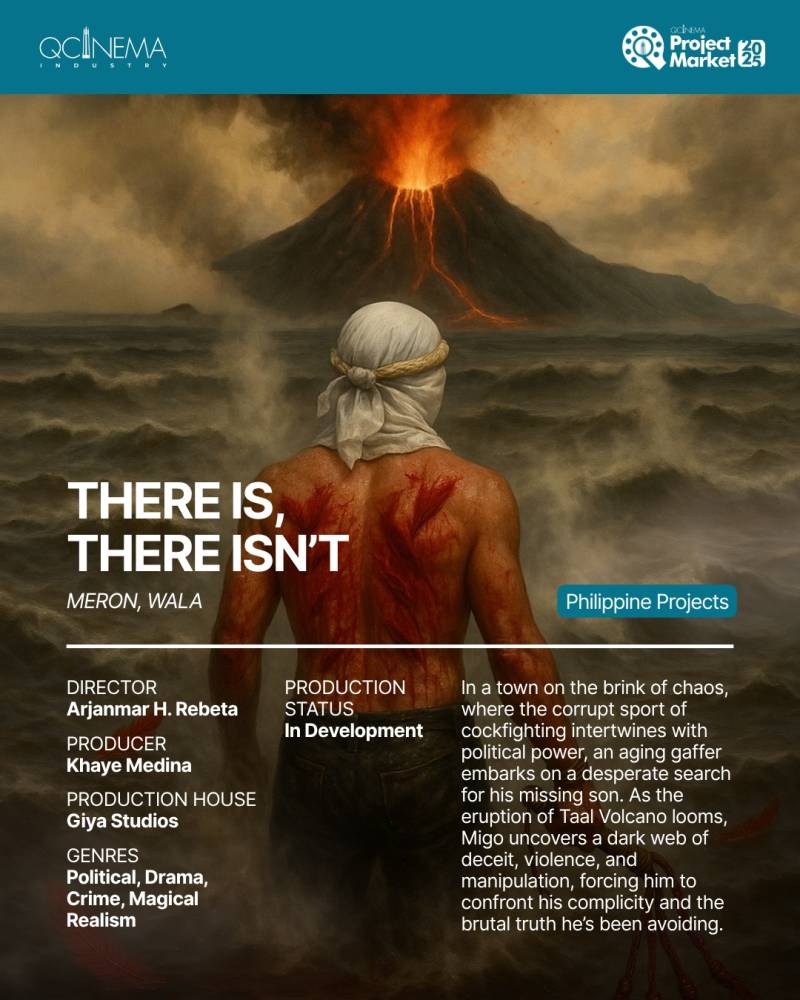
Under one ecosystem
Aside from QFM, another first in this year’s roster of QCinema programs— happening from Nov. 17 to 23 across various Quezon City venues—is Dokyu Day, a documentary immersion curated by Kara Magsanoc Alikpala. The event highlights the role of documentaries and non-fiction storytelling in shaping civic dialogue and inspiring social change.
Speakers include Atom Araullo, Howie Severino, Jeff Canoy, Baby Ruth Villarama, Monster Jimenez, Marlon Rivera, and Thara Brown.
This edition of Creative Industries Day will feature an all-women program titled “Her City: Women Shaping Sustainable Film Cities.” It will present discussions on gender parity in cinema, filmmaking roles not commonly held by women, and a Southeast Asian actresses’ roundtable with Iza Calzado (Philippines), Claresta Taufan (Indonesia), and other respected names from Malaysia, Thailand, Vietnam, and Singapore.
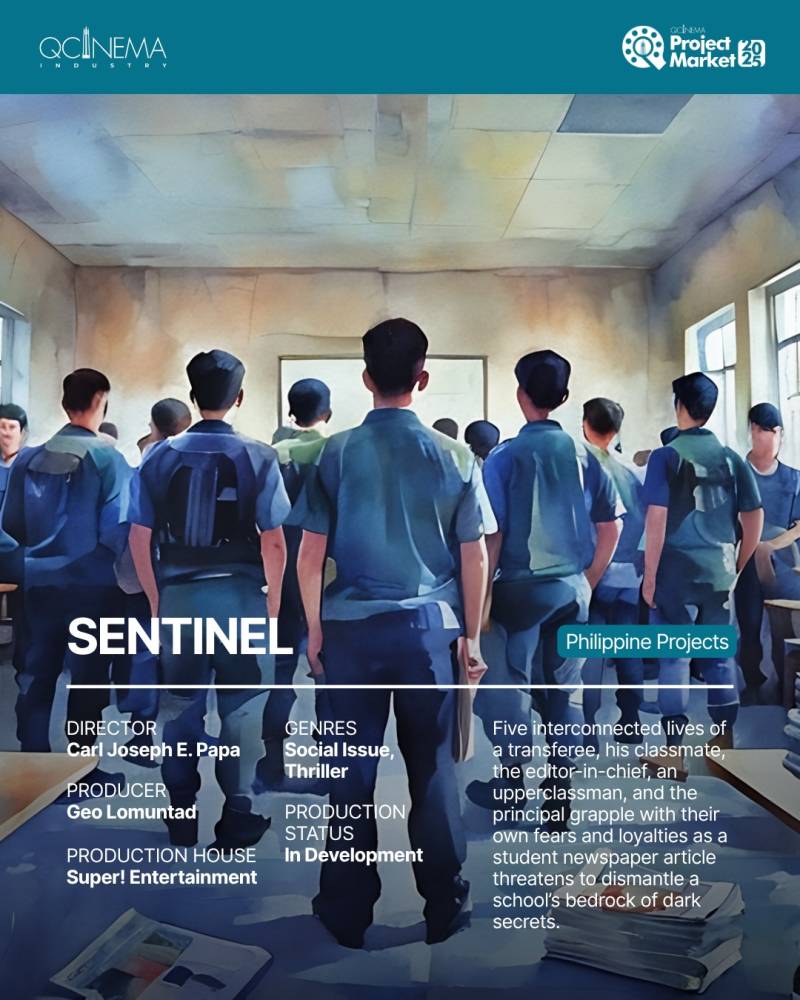
There will also be the signing of a manifesto and roadmap toward a more inclusive film industry. “We will talk about leadership, representation, and championing women in this industry—not as token topics, but as policy priorities,” Diño says.
Led by Central Digital Lab CEO and co-founder Manet Dayrit, the Asian Next Wave forum and masterclasses will focus on “the heart of the industry”—producers, designers, editors, craftspeople, cameramen, and more—who stand to benefit from a more professionalized creative workforce. “These are the unseen heroes who keep the industry alive, and it’s about time they take center stage,” Diño says.
All things considered, QCinema hopes to bring talent, institutions, and policy together under a single ecosystem. “We want to build an industry platform in Southeast Asia that reflects our strength and diversity,” Diño ends.


